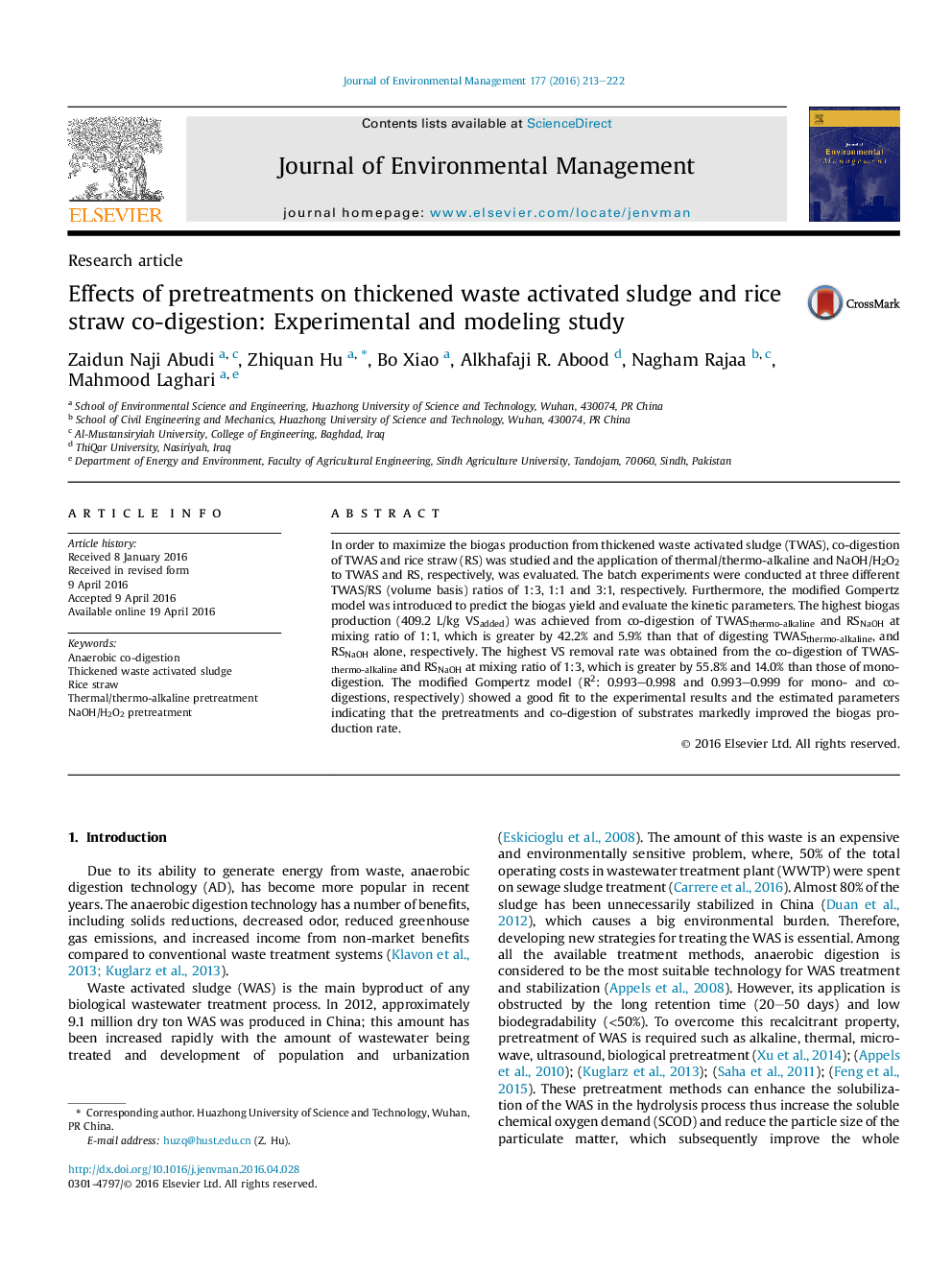| Article ID | Journal | Published Year | Pages | File Type |
|---|---|---|---|---|
| 7480387 | Journal of Environmental Management | 2016 | 10 Pages |
Abstract
In order to maximize the biogas production from thickened waste activated sludge (TWAS), co-digestion of TWAS and rice straw (RS) was studied and the application of thermal/thermo-alkaline and NaOH/H2O2 to TWAS and RS, respectively, was evaluated. The batch experiments were conducted at three different TWAS/RS (volume basis) ratios of 1:3, 1:1 and 3:1, respectively. Furthermore, the modified Gompertz model was introduced to predict the biogas yield and evaluate the kinetic parameters. The highest biogas production (409.2Â L/kg VSadded) was achieved from co-digestion of TWASthermo-alkaline and RSNaOH at mixing ratio of 1:1, which is greater by 42.2% and 5.9% than that of digesting TWASthermo-alkaline, and RSNaOH alone, respectively. The highest VS removal rate was obtained from the co-digestion of TWASthermo-alkaline and RSNaOH at mixing ratio of 1:3, which is greater by 55.8% and 14.0% than those of mono-digestion. The modified Gompertz model (R2: 0.993-0.998 and 0.993-0.999 for mono- and co-digestions, respectively) showed a good fit to the experimental results and the estimated parameters indicating that the pretreatments and co-digestion of substrates markedly improved the biogas production rate.
Related Topics
Physical Sciences and Engineering
Energy
Renewable Energy, Sustainability and the Environment
Authors
Zaidun Naji Abudi, Zhiquan Hu, Bo Xiao, Alkhafaji R. Abood, Nagham Rajaa, Mahmood Laghari,
